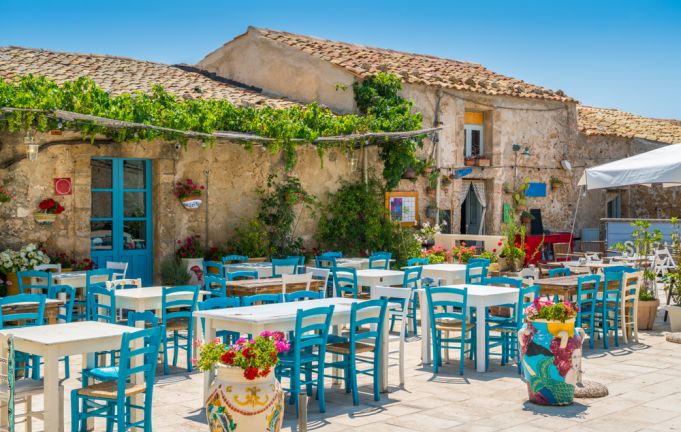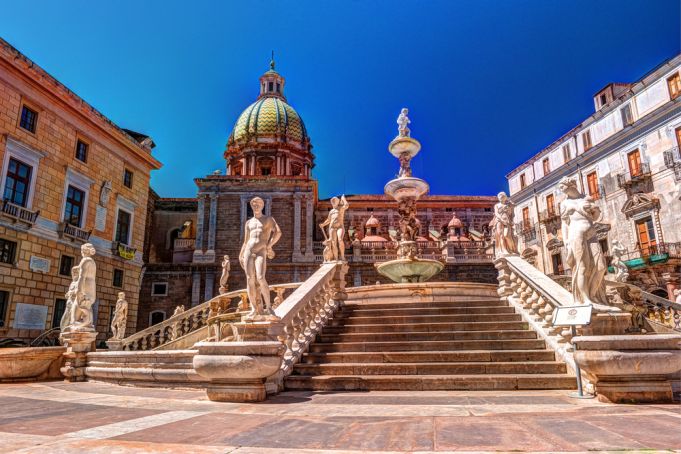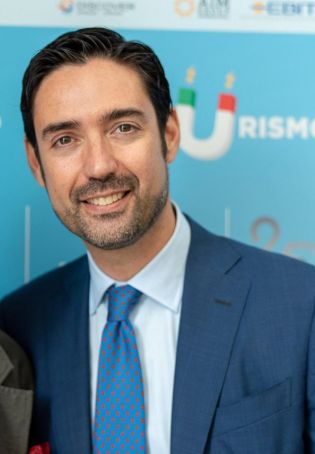What does the future look like for Italian Tourism
Antonio Barreca, one of the key figures in Italy's travel and tourism industry, talks to Wanted in Rome about what challenges the country's tourism faces as a result of the coronavirus lockdown.
by Marco Venturini
You are the director general of Federturismo - Confindustria. Can you give us a general overview of the association and explain what services it offers?
Federturismo is the National Business Federation of the Travel and Tourism Industry of Confindustria, and represents the entire production chain of the tourism industry.
The federation includes 20 different productive sectors, that range from hotels, spas, beach establishments, ski lifts, travel retail, marinas, transport (airports, buses, trains, car rentals), amusement parks, entertainment companies, travel agencies, tour operators, currency exchange, tax- free shopping, fairs, conferences and catering.
Federturismo is an association of companies, and as such represents their interests within the government and parliament in a spirit of constant dialogue and collaboration.

What is the importance of the tourism sector in Italy and how much does it weigh on employment and gross domestic product?
The Italian tourism industry has 4.2 million employees and an annual turnover of €232 billion, equal to 13 per cent of the nation’s GDP. Tourism represents the economic engine of entire regions of our country, now totally at a standby. It’s a sector with an incredibly valuable heritage that must be preserved, enhanced and made competitive. More importantly, in this moment of emergency in which all productive categories are blocked and will probably not restart even after the lockdown has been lifted, it must receive help.
How has the Italian tourism industry been affected by the coronavirus pandemic? Has an estimate of the damage already been made?
The situation is dramatic. Already in March, at the beginning of the emergency, the overall losses were estimated at around €30 billion, but now there are fears that they may also double, reaching €60 billion. Not to mention the 500,000 seasonal workers that should have been hired in this moment, and who have not yet seen the start of their contracts. Many of them live an entire year on the work of the summer months, and have problems accessing NASPI, a monthly unemployment allowance.
Are there some regions or sectors that are more affected than others?
They are all in the same situation, none excluded, even if the airlines, transport and accommodation facilities are the ones that are paying the higher price. Tourism was one of the first industries to be hit by the coronavirus crisis where travel restrictions and cancellations led to an almost complete halt to international and domestic tourism. All the bookings we had, as a country, were all cancelled.

What are the main concerns of your associates and how are you working to help them?
Businesses need to start again, quickly and safely. Along with UNI, the Italian Unification Board, we have agreed to open a technical tourism table in order to develop a first series of useful guidelines for businesses, that will gradually reopen in view of the summer season.
We are working to develop, within the general rules on workplace safety defined at national and international levels, the protocols to which all tourism companies must adapt in order to guarantee and offer their services in the safest way possible for workers and customers.
Having said this, government intervention will be necessary in any case. We must be sure that the lost profits will not force companies to close.
What are the Association's previsions for the coming months?
A return to normal is not going to happen soon, especially if we think of international customers which make up half of our market.
This summer in Italy, we will not be able to rely on international tourism, which contributes 51 per cent of the bookings in hotels and accommodation facilities. We trust in the internal market, even if we are worried about the spending capacity of our fellow Italians. There is a possibility that many of them will have to work during the summer, as their vacation days were used up due to the fact that companies have leaned on this method to ground themselves during the pandemic.
We must also consider that the structures that will reopen, in order to guarantee social distancing, will necessarily work at 30-35 per cent of their usual capacity.
How will the tourism sector change after the pandemic?
It is inevitable that the way of doing tourism will be turned upside down.
Although it is difficult now to be able to make predictions, we can still assume that in the reboot phase, forms of travel mainly concentrated in Italy and of short-medium range will be preferred. A kind of tourism that will go for smaller and less crowded destinations and open air activities. As well as individual trips for couples and families.
What would you like to say to potential Italian tourists who, even in these uncertain times, are starting to think about the summer holidays?
In this climate of profound uncertainty, Italians are not booking their holidays and those who have done so previously, have cancelled their booking. But, the summer holidays must be saved and the message to convey is that you can go on holiday despite the virus, you just need to be equipped and follow the instructions that will soon be given by the competent authorities.
It will be proximity tourism: by the sea, in the mountains or in the villages. The important thing is that Italians start travelling again.
What are, in your opinion, the actions that the Italian government must absolutely take to help the Italian tourism industry?
Certainly the pandemic crisis, with the blocking of flights and the fear of infections, will make the arrival of foreign tourists in Italy very difficult. However, they must be reminded that they all can book with the guarantee of not losing anything, as they will always be refunded. The government has set regulations on how to make refunds, and tourism companies will respect them with great responsibility.
In this critical phase of health emergency, but also a socio-economic one, companies need a quick and decisive intervention to support their business and a push to restart. For this reason, we have asked the government for a package of measures, such as the abolition of taxes for the whole of 2020, a tax credit on rent for hotels and tour operators, and extraordinary funds dedicated to tourism along with the simplification of the application of social safety nets.
The government must show that it has understood the seriousness of the situation, and we expect special measures to help us face the situation.
Antonio Barreca
Since July 2011 Antonio Barreca has been the director general of Federturismo, the Italian National Federation of the Travel and Tourism Industry which is part of Confindustria (the Italian employers' confederation). He served in 2014 as a senior advisor for tourism for Sicily. He has been a member of the Tourism Sustainability Group of the European Commission since February 2011, and the vice president of the tourism committee at the Italian Organization for Standardization (UNI), an association that publishes standards for industrial, commercial and tertiary sectors.


















